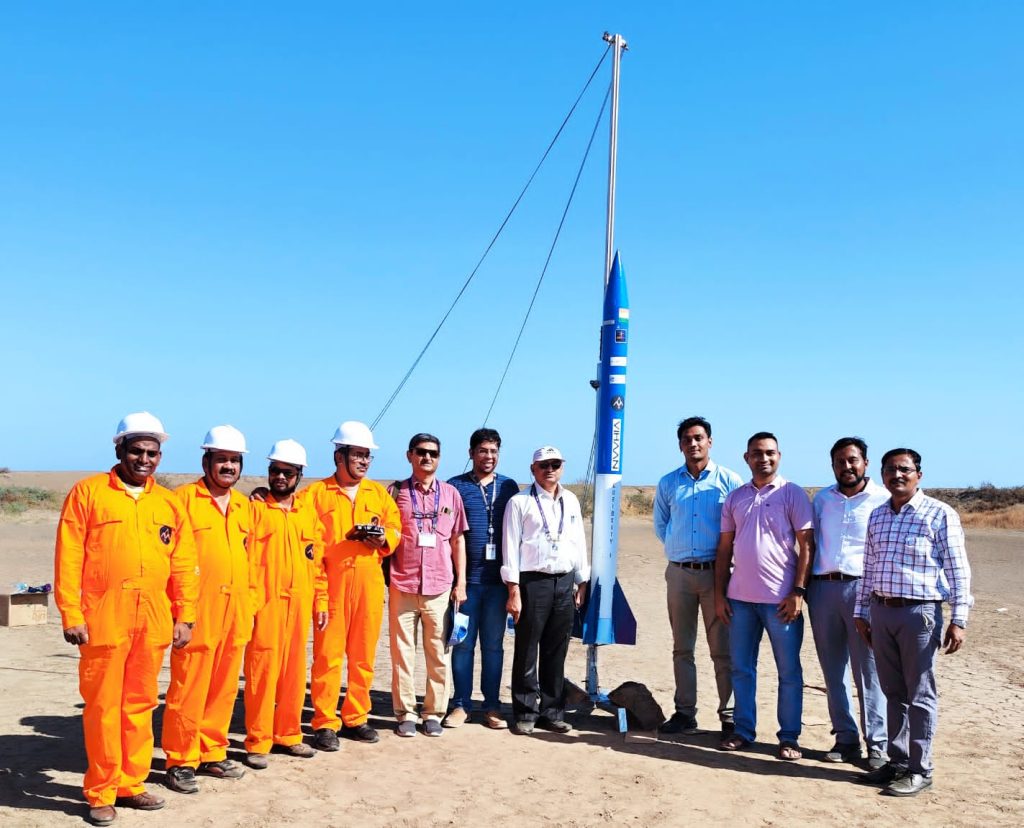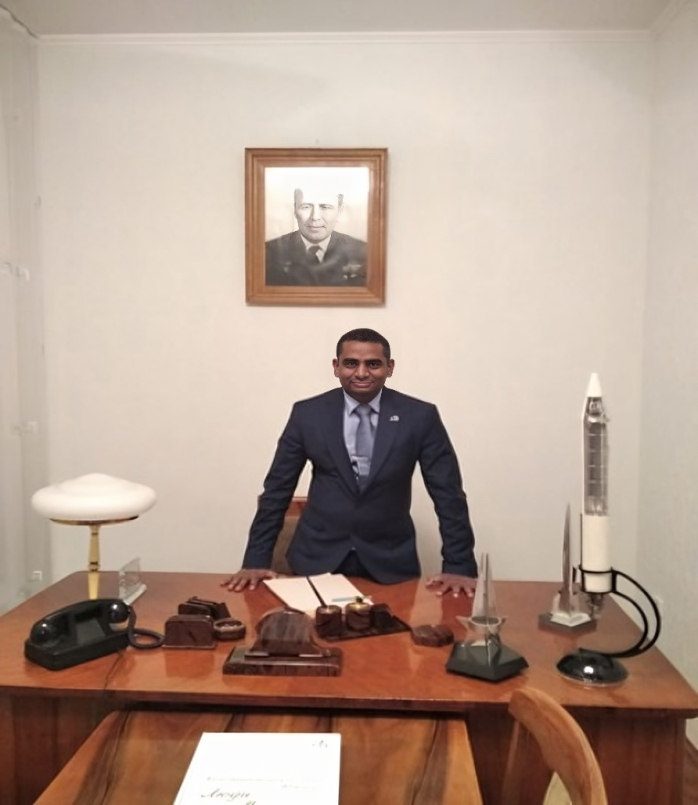Please brief us about the Journey from becoming an entrepreneur?
The journey started all the way down in 1999 when I built my first gunpowder rocket. It went to 300 meters but created long lasting, enduring zeal and gave a purpose of life. Later I completed by graduation in Rocket Engineering specialization in Design from National Aerospace University, “KhAI” Ukraine. For all four years we studied Rocket Launch Vehicle design, Space System Designing especially the Bipropellant Rocket engines, I was privileged for getting an opportunity to have been trained by great professors and engineers from Antonov Design Buro and SDO Yuzhnoe, Ukraine. Post this formal education in the discipline and professional training in Ukraine, we continued the development of Sounding rockets, Weather modification and Armament Rockets in Ukraine in close cooperation team of Ukrainian OEMs.
In India we started the Sounding Rocket Development activities for the professional training of the students. Back in 2012 The High-Power Rocketry in India was pioneered by us. So far more than 70 successful launches from almost all parts of India has been done. After the Russian invasion of Ukraine, our team had to get back to India and start our Private Space program from Indian Mainland. Vihaan Spacetech was established in 2023 in Nagpur.
Our mission and vision are to produce and give a reliable economical new generation Mid-Heavy Space Launch vehicle for LEO, GTO and Trans-Lunar Space missions. At present our team is focused on detailed design stage of the Tech-Demonstrator Space Launch Vehicle for – Very Low Earth Orbit mission.
What are the challenges & opportunities you see in Indian Space Market?
Indian Space Market and its ecosystem is at budding stage. With tremendous aspirations and potential of the young Start-Ups, it yet has to travel miles ahead. Challenges faced by them are multifaceted. The lack of clarity of the customer base, crunch of the development funding support and uncertainty of the sustainable business generation are the few primary challenges. These challenges despite the government’s positive encouragement to the private industry, are aggravated when it comes to procurement by the PSUs and Direct Government sector. Availability of the material supply, its testing and Import permissions are the administrative issues need be resolved at governance level. Small competitive market, slow government processes and investment support are the key challenges the private industry needs to get into everyday.
What are the leading space applications in all segments that you think can shape up the Indian space industry in coming years?
Space for Earth applications holds a high potential market that needs to be tapped by Indian space ecosystem. The Earth Observation, Remote sensing data for the urban development and defence reconnaissance holds high potential. Some typically ignored but unique space application which remained ignorant but has no competition in India are: Micro-gravity Space Manufacturing of Pharmaceutical, in space Additive manufacturing and Space based IOT applications holds a tremendous business potential by the private sector.
Where do you see the Space industry by 2030?
By 2030 I see the space-based data business a great success and Indian market share in the space application becoming up to $ 15 Billion USD. Space Industry will become more strategic. Both government and private sector investment will grow up 90$ of the space business. The industry by 2030 will certainly cross $ 738 billion Evaluation of the market. India’s market share in the space industry can be expected to cross its 9% market share. The Space industry will grow with 7 % consistent annual growth rate. 90 % of the business will be in the downstream space application business, eg. IOT based satellites, Space based internet, in space manufacturing, etc.
What is your USP? What sets you apart from other competitors?
A very fact that a pioneering space vision of India’s alternate private space program makes us a part. Everybody has a product but we have a complete space program. This philosophy is manifested in all our orbital and space transportation products. Naming a few a development of a dedicated V-LEO space launch vehicle for reusable in space manufacturing orbital payload launch vehicle which is powered by Biomethane powered engines with Vertical Take-off and Horizontal Landing Concept makes our Launch Vehicle and its service makes us stand not just unique but distinguished.

What is your suggestion to youngsters who wish to choose space as their careers?
My only suggestion is to opt for Design specialization in Propulsion system and Space orbital mechanics. Material, Propulsion, System engineering and Space Project Management would be a key area of specialization that would give them a competitive edge. It takes years of hands-on experience and supervision of more experienced technocrats to become a good design engineer. So, I strongly advice to organize into a student hands-on project group. Select an industry relevant project or problem statement from 4th semester in your undergraduate course and continue its development simultaneous to your formal studies of subject knowledge so that at the end of your graduation / postgraduation your project becomes a workable and sellable solution to the industry. This would increase the employability of the Space carrier aspirants and industry would require the fleet of highly competitive space engineering experts and space leaders.
What is your Wishlist for 2024?
Well, we have a long Wishlist but speaking in terms of planned and scheduled work of 2024, we have priorities of Successful test demonstration of our Hall Effect Plasma Thrusters in LPSC facilities, Space shot to space with students and Mr. MRK Menon of Model rocketry society of India and Test Launches of our Sounding Rocket from VSSC facilities in Thumba. The validation of our Orbital Transfer Vehicle mission and V-LEO Launch Vehicle Simulation Validation at ISRO are on our top agenda list.
Need of a dedicated student built nonprofit space launcher for Student built and University research payloads.
India if needs to encapsulate the growing space career aspirations, the university space research and enthusiasm amongst the youth for space studies, we must be able to provide them a hands-on regular space participation. Indian Space Policy Makers must come out with an ISRO monitored dedicated Student Space program. In which student will build the rocket and launch it for a dedicated university built space payload and All India Intercollegiate Rocket Launch Competition.


